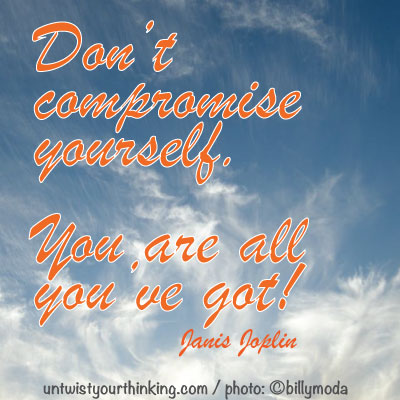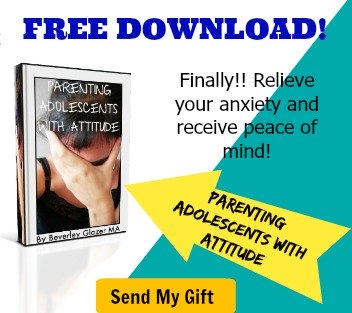What is an Abusive Relationship?
An abusive relationship can sneak up on you, early in the dating stage and if you’re codependent, you set weak boundaries so you’re much more easily conned.
Beware! Abusers are great con artists. They can be very charming and convincing with everyone (even their partners) until you get ‘hooked’. They may even continue to be ‘really nice guys’ to everyone – accept you.
This is a very effective tactic, because the victim thinks, “maybe it’s my fault”, particularly when the abuser says that it is in the first place. It also makes it more difficult to complain about an abuser because they can be so charming that no one would believe you.
Abusive Relationship Warnings
Ask yourself:
How does your partner talk about you?
Is there name calling and insults? Words like ‘bitch’ ‘idiot’ etc. are unacceptable. If your partner is verbally abusive, call him/her on it.
Is your partner position him/herself as ‘perfect’?
If someone is ‘perfect’, they’re always ‘right’. So if you disagree, you’re ‘wrong’. There will be arguments and possibly physical abuse.
Is your partner intensely possessive or jealous?
If you feel you're being kept away from friends or family members, or feel trapped because you can't go anywhere without your partner, or have to call in to stay in check, it's borderline abuse. It's also how abusive relationships begin.
Is your partner respectful to his/her parents?
The way they treat their parents can be a future predictor on how you’ll be treated. However, you must be vigilant, because if this is a new relationship, they may be covering up their abusive behavior until later.
Does your partner accept a ‘no’ answer? An abuser will often insist that you do things his/her way ~ their way only!
Do you feel pressured to change or do things you’re not ready to do?
Part of abuse is establishing control. Controlling includes statements like: "You belong to me, and only me" (when the relationship is new) "I wish you were like X", "You're just like your mother" or “if you only lost weight/dyed your hair, etc."
Do you feel that you’re always ‘walking on glass’?
Any time you find yourself watching what you say for fear that s/he'll get angry––again––you should re-evaluate your relationship.
Are you afraid of your partner?
No matter how much you love this person, if you're fearful, you have a problem.
Can you predict your client’s mood?
One moment s/he seems loving, the next s/he is threatening. If you never know where you stand, you're in an abusive relationship, be it emotionally or physically expressed, or both.
Does your partner use drugs or alcohol to excess? Does your partner become violent, difficult, nasty and selfish when using drugs or alcohol? Are they willing to quit? If not, this person is selfish and in need of help.
You never deserve to be harmed.
Emotionally Abusive Relationships
Consequences of Verbal and Emotional Abuse, from the Center for Relationship Abuse Awareness:
A distrust of her spontaneity
A loss of enthusiasm
A concern that something is wrong with her/him
Reviewing incidents with the hopes of determining what went wrong
A loss of self-confidence
A growing self-doubt
An internalized critical voice
A concern that she/he isn't happier and ought to be
An anxiety or fear of being crazy
A sense that time is passing and missing out
A desire not to be the way he/she is, "too sensitive," etc.
A reluctance to come to conclusions
A tendency to live in the future, e.g. "It will be OK when/after ..."
A desire to escape or run away
A distrust of future relationships
Codependency & Abuse
Codependent people usually put aside their own needs, so that they can meet the needs of others. This makes them prime candidates to get into an abusive relationship.
They have low self-esteem and need things or other people, to give them feelings of self-worth. They’ve often come from dysfunctional or abusive families, and have learned early on, to react to others' feelings, worrying and depending on them to feel useful.
Although they know that they’re in a bad relationship, they stay in spite of verbal, psychological or physical abuse.
If you are in a codependent relationship, you can get help.
Help For An Abusive Relationship
Codependency is hard to detect, because it's hard to define what's right or wrong. I'm often asked, "don't I have to care?" "I don't want to stop caring. What should I do?"
Of course you should care, and you don't have to stop caring. However, the difference when you're codependent is HOW you care. When you have codependency you go overboard and when others reject it, you're hurt.
Mothering is not smothering. Caring is not enabling. When you do this, you don't have healthy boundaries, and this affects all your relationships ~ with partners, friends and family members. All this can be learned with counseling or coaching.
There are also self help groups and 12-step groups that can also be helpful.
Through counseling you learn to be free of guilt. You learn to set healthy boundaries and most importantly, you learn that caring is not self-sacrifice.
Counseling shows you healthy ways of caring.
For a free 1/2 hr on-line coaching strategy session, let's talk
If you feel you are a victim of domestic violence reach out for help.
Think we should talk? 514-400-9375
Do you think that you may be in an emotional affair? Are you cheating?
This site provides information only. It is not intended to replace face-to face counseling with medical or psychological professionals.
Please click and read Privacy Policy and Terms of Use
The use of this site constitutes your understanding and acceptance.
©Untwist-your-thinking.com 2007-2015. All Rights Reserved.
For powerful Self-help & PERSONAL GROWTH Tips
______________
For Recent articles
|
6 Bullet-proof Ways to Unmuddle Your Life Key Reminders When You Say You're Not Good Enough! |
Tweets by @BeverleyGlazer
Testimonials
Bev Helped Me
Your humor, understanding & insight into my problems helped me beyond my wildest dreams
~ Luella J. NYC
I'm So Grateful
Now I can see how my dysfunctional family members won't change, but the way I handle them certainly has. So Grateful.
~ Steve W. Tokyo
Thank You
Thank you for being there, for guiding us in the right direction and helping us understand and renew a relationship with our daughter. No words can express our gratitude.
~ J.C San Antonio
What A Difference!
You have made a huge difference in my life. I can't thank you enough.
~J.B. Vancouver,B.C
I'm Speechless
I don't seem to find the words that would do justice to all that you have helped me deal with.
~P.L. Sydney, Au
Have a question? Here's where you ask.








